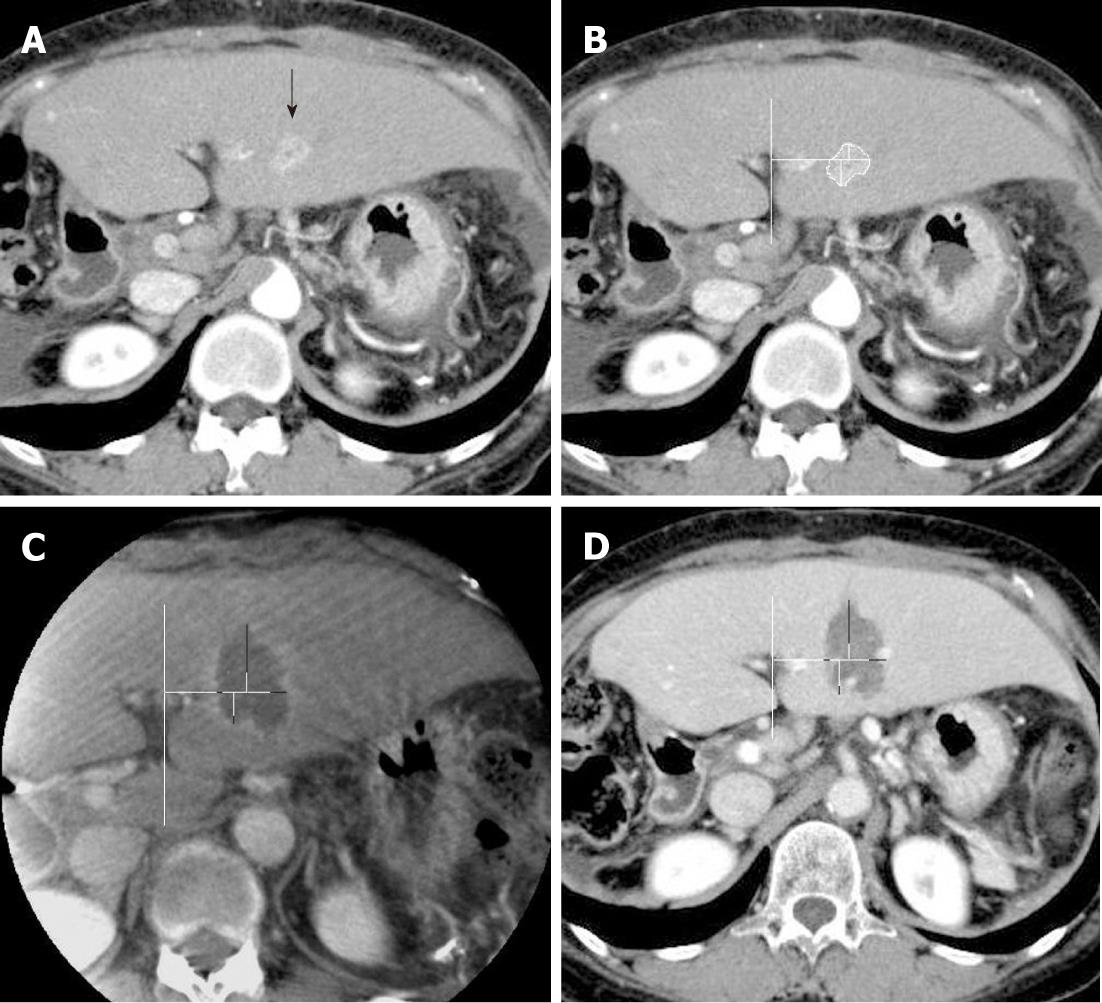Copyright
©2012 Baishideng Publishing Group Co.
World J Radiol. Mar 28, 2012; 4(3): 109-114
Published online Mar 28, 2012. doi: 10.4329/wjr.v4.i3.109
Published online Mar 28, 2012. doi: 10.4329/wjr.v4.i3.109
Figure 2 A 59-year-old woman with a 15-mm hepatocellular carcinoma in hepatic segment III.
A: An arterial-phase image from contrast-enhanced multidetector computed tomography (MDCT) prior to treatment shows a well-enhanced tumor in hepatic segment III (arrow); B: An arterial-phase MDCT image in which the tumor size has been measured in the vertical and horizontal directions and the tumor location has been determined by the distance from the left portal vein; C: An intravenous contrast-enhanced C-arm computed tomography (CT) image obtained just after radiofrequency ablation (RFA) reveals insufficient ablative margins in the right lateral (1.1 mm) and dorsal (1.9 mm) directions. Indentations caused by the left hepatic vein and the portal vein adjacent to the tumor might disrupt sufficient ablation. The ventral (11.3 mm) and left lateral (5.4 mm) ablative margins appear sufficient; D: A portal-phase image from contrast-enhanced MDCT obtained 7 d after RFA shows an almost identical configuration with comparable ablative margins (ventral margin, 11.0 mm; dorsal margin, 3.0 mm; right lateral margin, 2.0 mm; left lateral margin, 6.0 mm) to those evaluated on C-arm CT image.
- Citation: Iwazawa J, Ohue S, Hashimoto N, Mitani T. Ablation margin assessment of liver tumors with intravenous contrast-enhanced C-arm computed tomography. World J Radiol 2012; 4(3): 109-114
- URL: https://www.wjgnet.com/1949-8470/full/v4/i3/109.htm
- DOI: https://dx.doi.org/10.4329/wjr.v4.i3.109









